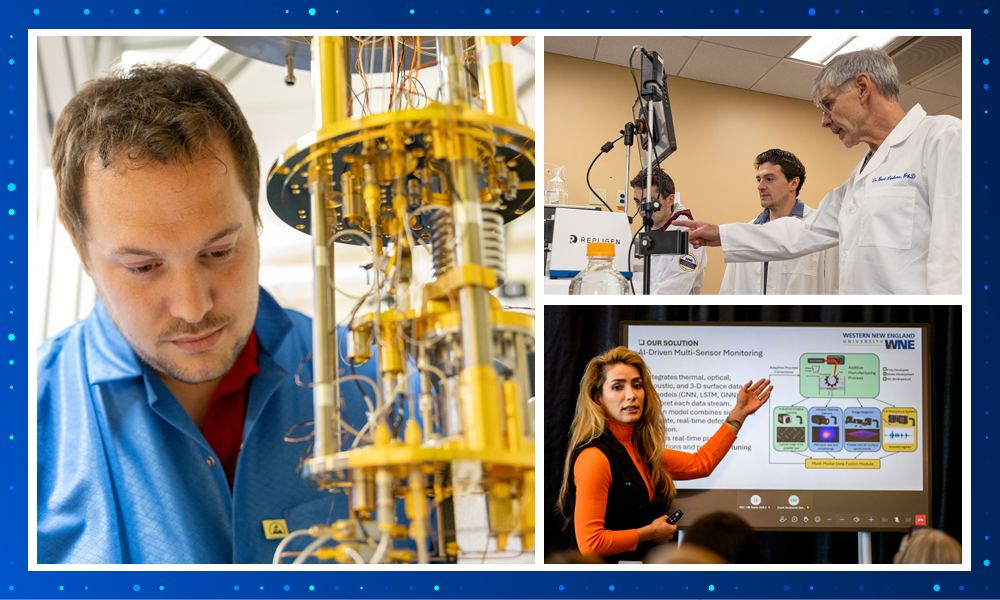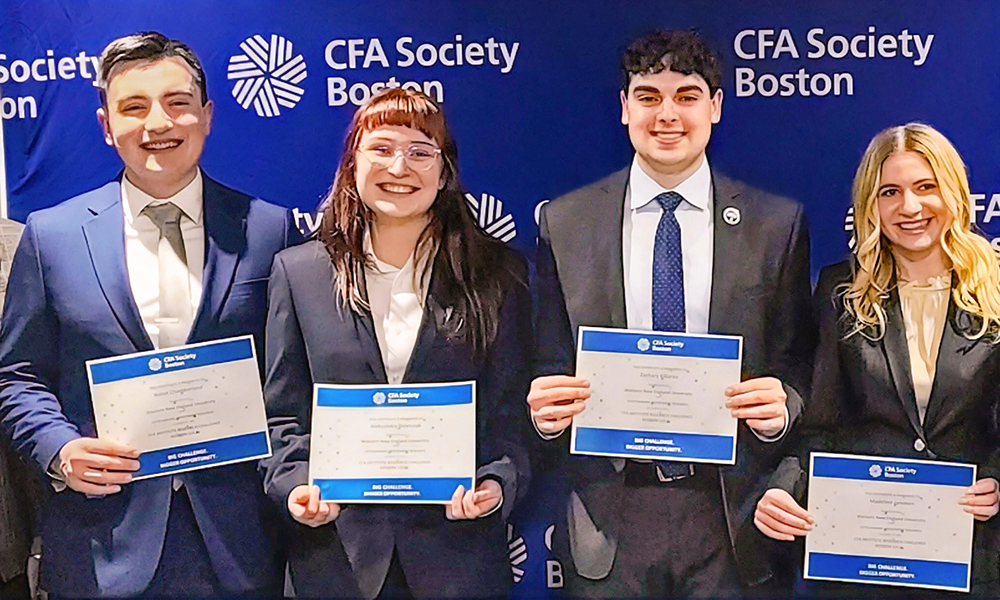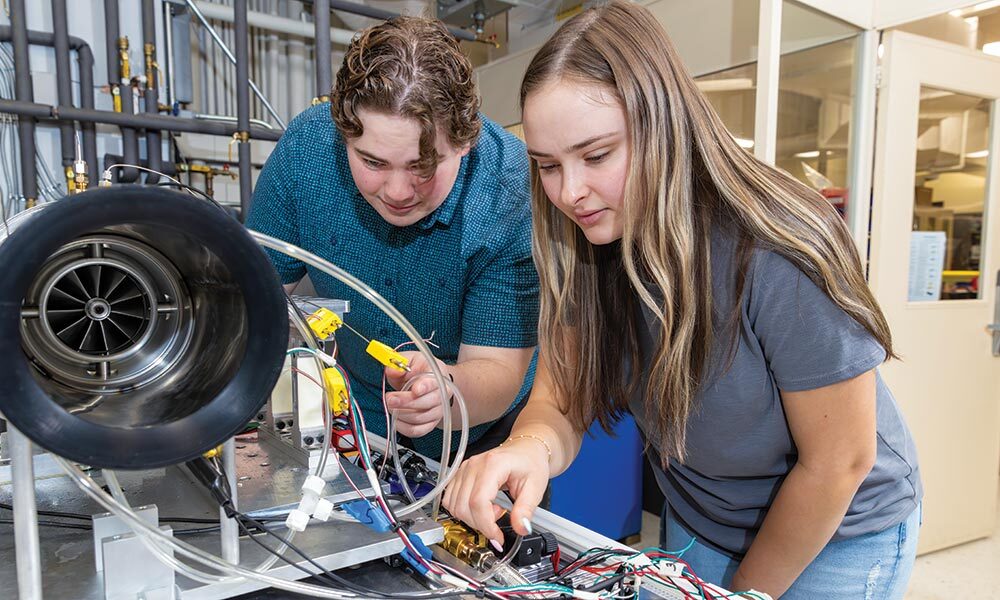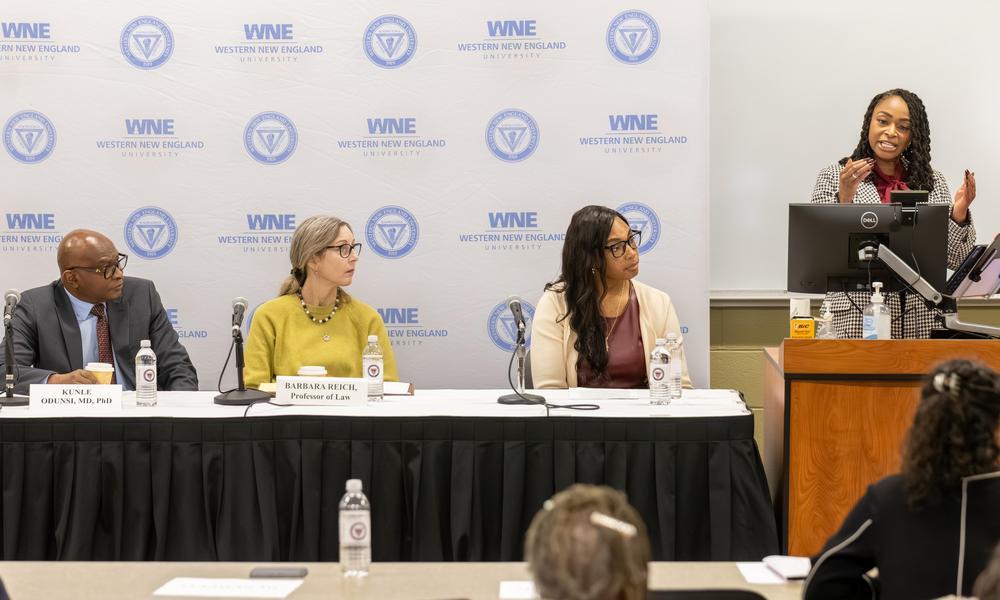Western New England University (WNE) has been awarded nearly $1.3 million in state funding through three major grants announced by the Massachusetts Technology Collaborative (MassTech) and the Massachusetts Life Sciences Center (MLSC). These strategic investments will strengthen WNE’s leadership in workforce development, applied research, and industry partnerships in three rapidly advancing fields: biopharmaceutical technology, artificial intelligence (AI), and quantum hardware.
“These awards underscore WNE’s role as a vital innovation partner in the Commonwealth’s knowledge economy,” said Michael B. Alexander, Interim President of Western New England University. “Our faculty and students are not just preparing for the future—they are helping build it. Through these state partnerships, WNE is advancing research that will shape the next generation of life sciences, AI, and quantum technology.”
$250,000 to Advance Biopharmaceutical Workforce Training
The Massachusetts Life Sciences Center awarded $250,000 to support WNE’s M.S. in Biopharmaceutical Technology program, led by Principal Investigator Bart Lipkens, professor in the College of Pharmacy and Health Sciences. The grant is part of a statewide $12.7 million investment to expand life sciences education and workforce training.
The funding will help WNE start this new graduate program that will prepare students for in-demand roles in Massachusetts’ growing biopharma sector, establish a biotechnology lab that will enable work in cell and gene therapy, and expand faculty research endeavors in this cutting-edge field.
$500,000 to Lead an AI Innovation Challenge
WNE also received $500,000 from MassTech to advance its work in artificial intelligence and innovation. Led by Principal Investigator Hanieh Shabanian from the College of Arts and Sciences, this project will position the University as a regional leader in applied AI research, experiential learning, and industry collaboration.
The initiative fosters partnerships with businesses working to integrate AI solutions across sectors including healthcare, advanced manufacturing, and financial services. In particular, the award to WNE will allow the researchers to develop a multi-sensor AI model for real-time defect detection and process optimization in metal additive manufacturing.
$500,440 to Support Quantum Hardware Commercialization
As part of a $3.8 million statewide investment in quantum innovation, WNE was awarded $500,440 to expand its role in quantum hardware development and commercialization. Led by Principal Investigator John Burke in the College of Engineering, WNE will collaborate with University of Massachusetts Boston and industry partners to scale “lab-to-fab" technologies, build workforce capacity, and advance testing and packaging infrastructure at its Center for Quantum Hardware Development.
The initiative will also launch the Quantum Jumpstart seed grant program, designed to help small businesses accelerate product development. The Center for Quantum Hardware Development at WNE comprises two laboratory facilities: one dedicated to testing superconducting hardware essential to today’s quantum computers operating at cryogenic temperatures as low as 30 mK, and the other, LEAP@WNE, focused on exploring how integrated photonics and optical systems can be leveraged for neutral atom quantum computing and quantum communication networks.
“These strategic investments from the Commonwealth reflect the confidence state partners and industry leaders have in WNE’s capacity to deliver real impact,” said Lisa Celovsky, Interim Provost and Vice President for Academic Affairs. “From the lab to the classroom, our faculty are leading transformative projects that give students the skills and experiences needed to drive innovation.”
WNE’s growing research portfolio in life sciences, AI, and quantum technologies is central to its mission to prepare students for emerging fields that power the regional and national economy.
For more information about WNE’s research and innovation initiatives, visit wne.edu.





